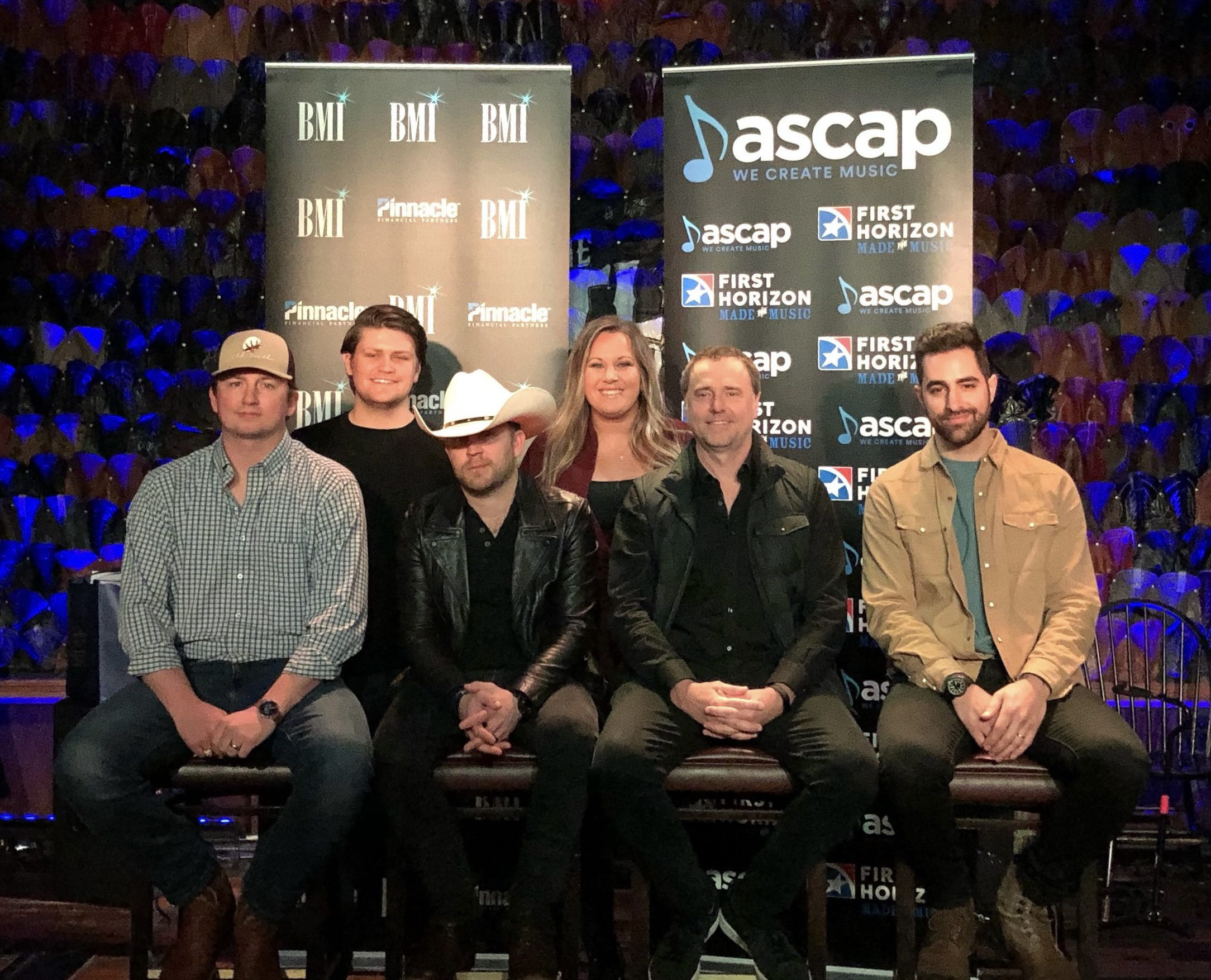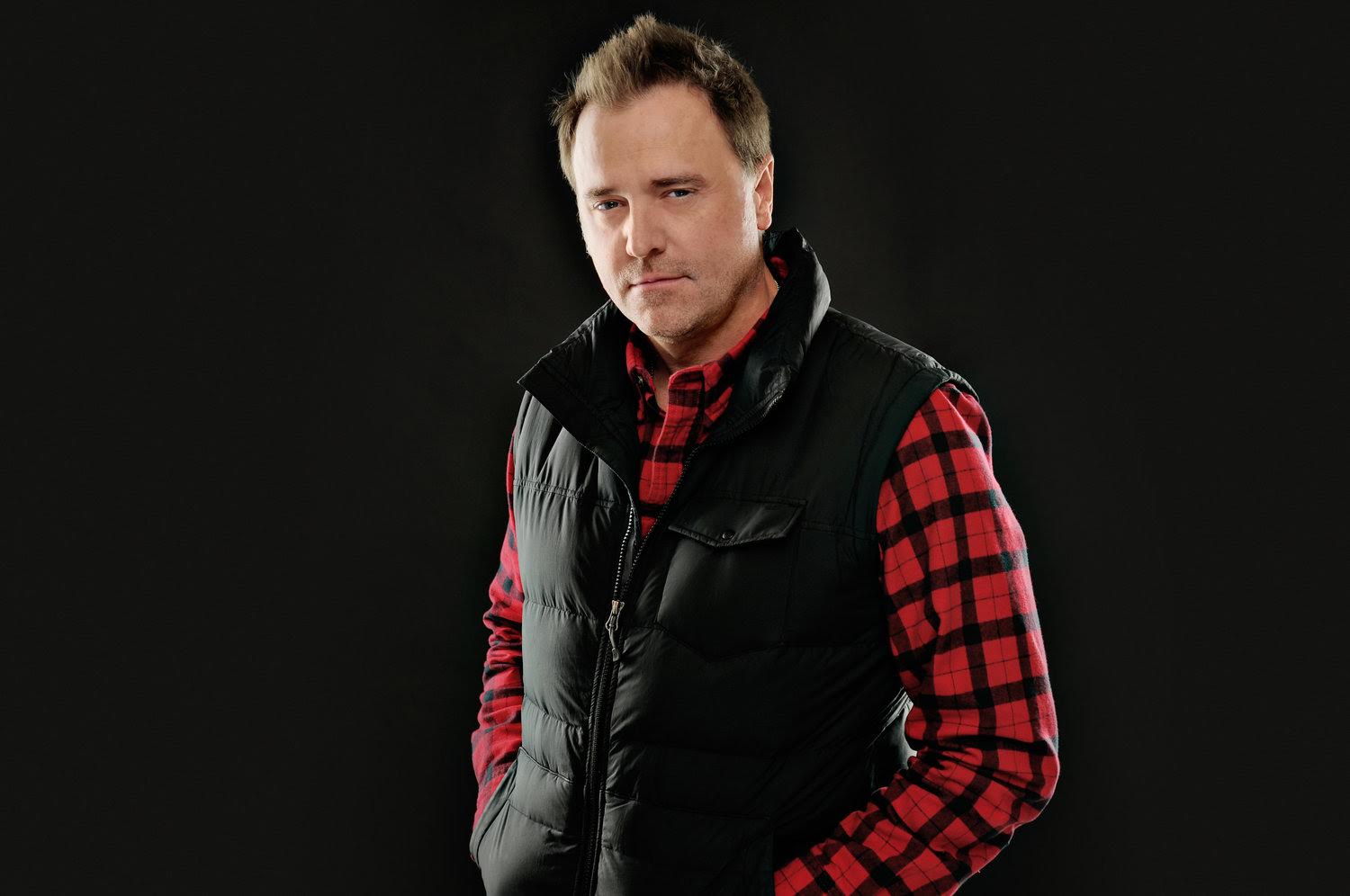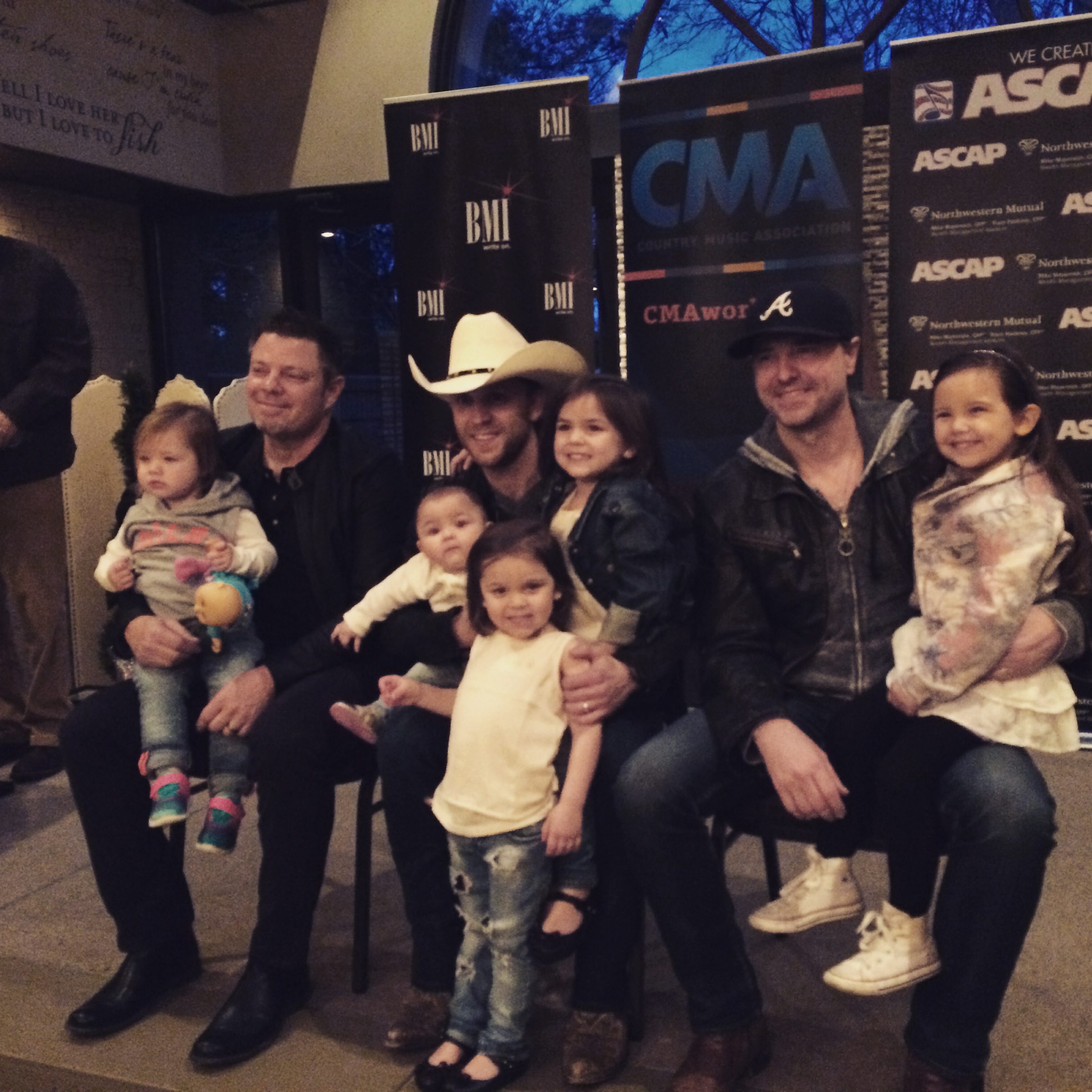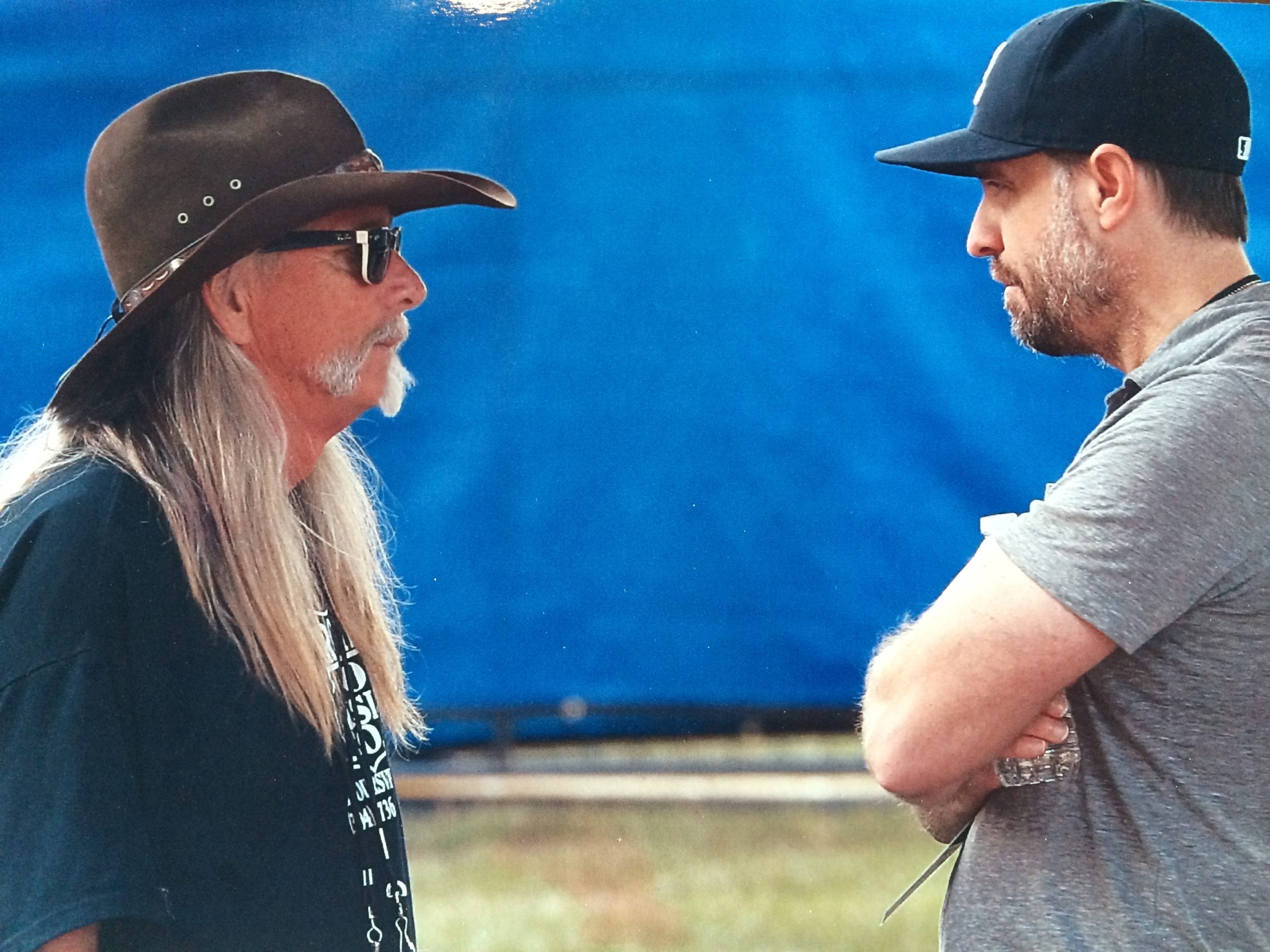My Music Row Story: Red Creative Group’s Jeremy Stover
The “My Music Row Story” weekly column features notable members of the Nashville music industry selected by the MusicRow editorial team. These individuals serve in key roles that help advance and promote the success of our industry. This column spotlights the invaluable people that keep the wheels rolling and the music playing.
As an acclaimed producer/songwriter, Jeremy Stover has celebrated multiple chart-topping hits including Tim McGraw‘s “How I’ll Always Be,” LoCash‘s “I Know Somebody” and Jack Ingram‘s “Wherever You Are.” Stover has worked alongside Justin Moore since his debut in 2009, resulting in multiple hits, including “Small Town USA,” “Bait a Hook,” “Til My Last Day,” “Lettin’ the Night Roll,” “Why We Drink,” “The Ones That Didn’t Make It Back Home,” “We Didn’t Have Much,” and more.
In 2014, Stover founded independent music publisher Red Creative Group. Since its inception, the company has celebrated more than 300 cuts and 40 singles on the country charts, with hits including “How Not To,” recorded by Dan + Shay; “Sleep Without You,” recorded by Brett Young; and “After A Few,” recorded by Travis Denning.
In addition to publishing, Red Creative Group serves as an artist development and management company, releasing music as Red Creative Records, with a growing roster of artists, including Noah Hicks, Matt Koziol and Tylynn Allen.
MusicRow: Where are you from?
Elijay, Georgia.
Were you musical as a kid?
I would say so. My mom sang in church. My grandmother on my mom’s side always had a guitar sitting around and she would play gospel songs periodically. She’s passed away now but she was a big influence on me.
After I moved to Nashville, I went to college at Belmont University. She never understood what I was doing, but every time I would go home she would say, “I’ve been watching the Grand Ole Opry and I still haven’t seen you on it.” (Laughs)
You wrote many songs that have been performed there! Did you want to be a songwriter growing up?
I did. Belmont was not the first school I went to. I started at Southern Tech. My dad was in the carpet industry at that time. He had started a business in the mid-eighties and the plan was that I was going to take over his business. So I was getting a degree in textile engineering, which leads into the carpet and yarn business. I had a roommate there and I was driving him nuts playing guitar and learning songs. I was trying to write songs by myself; they were not very good. I don’t know if it was out of me driving him nuts or him just being a good friend, but he said one day, “I have a friend that goes to a school in Nashville called Belmont.” The next morning I skipped class, got in my car and I drove to Nashville.
As I was driving back, I just decided I was going to go home to my parents and say, “I’m moving to Nashville.” That’s how the decision was made to move to Nashville. I went to Belmont and finished school there.
My dad is one of 15 kids. None of them graduated high school because they had to go to work to support the family. So one of the promises I made my parents was that I would finish college. Not to pat myself on the back, but I was the first one out of the family to graduate college. I owe a lot of that to my dad and his hard work to get me to that spot. Since then, there’s been a few others that have finished college, but that was a big point in our family for one of us to do that.
How did you find your way while at Belmont?
It was just a process. Fortunately for me, I got in a circle of three or four friends after I got there that I really related with in a lot of ways. We all became friends and we would write songs together. It was really a good circle of people—a couple that I still work with. When I got out of Belmont, it wasn’t like I just jumped in and I had songs on the radio.
What was your first job in the industry?
I worked at a smaller publisher for probably the first six months to a year. I got an interview for what they used to call the tape copy job, which is where you would make CDs that the song-pluggers would pitch. I got that job at Muy Bueno Music, which was George Strait‘s publishing company. Through working there over a couple years I got to meet a lot of writers. At that time, I was taking the time probably three or four nights a week trying to write songs with my friends at first. Then I was able to start incorporating some of those songwriters that I’d met that were willing to sit down with me in the evenings and write some songs.
After a couple of years, I’d saved up enough money to do demo sessions of 10 songs that I thought were my best songs. Through working at Muy Bueno, I had met musicians and engineers that I liked. I had kept [my songwriting] under the radar, but I had obviously met a bunch of the other publishers, so I went to five different ones that I really believed in and played them my songs. They all offered me beginner publishing deals, so I signed my first publishing deal at Starstruck. Six months into that deal, they sold to Warner Chappell. That was the beginning.
When did you start to have songs on the radio?
It took two to three years to get the relationships going and for people to start recording my songs. I had my first single in 2003 on Emerson Drive, which did really well. From there, it’s been a steady, slow build through my songwriting, which led to producing. Success in those couple of things led to me starting my own company.
How did you get into production?
I started with my demos. I think a part of me getting my first publishing deal was, for the time, how the demos sounded and the possibilities of me growing into a production career as well. That was part of the big picture for me.
Through the process of having my first hit on Emerson Drive, I met Scott Borchetta when he was running Dreamworks Promotions. He was really cool. When he started Big Machine Records, he gave me the opportunity to record Jack Ingram. Jack’s “Wherever You Are” was my first No. 1 as a writer and a producer. It just continued to grow from there.
You soon started writing with and producing Justin Moore, which has been a very fruitful relationship. How did you meet?
I met Justin Moore in 2003. He just came into my writer’s room and sang a couple songs. In my mind with my outlook on how I grew up, his voice was something that I really attached to. In a certain way it gave voice to what I’d always wanted to project. That was a big moment. But we met in 2003 and he didn’t have his first No. 1 until 2009, so he and I worked together for a really long time through that process.
As things started to work for him, I had experienced some production success and writing success through those first six years. With Justin is where I found some focus on being able to help grow something that I really related to.

Pictured (L-R, back row): Taylor Lamb, Brooke Antonakos; (L-R, front row): Chase McGill, Justin Moore, Jeremy Stover, Paul DiGiovanni
Why did you want to put your publisher hat back on and start Red Creative Group?
That just happened naturally. I was able to establish myself in a way where people would take my calls. I had developed those relationships through some success. I felt like I had reached a certain level of success that I wouldn’t say I was happy with, but gave some confidence in what I was doing. I wanted people that I believed in to experience what I experienced.
Some of the most fun times [of my career] were the early times when you didn’t know if something was going to happen and then it happened. Having some people around you that believe in your talent and that are preaching that you can do it is as satisfying as having the success.
Do you think you approach publishing differently because of your songwriting journey?
I think so. Especially in the last three or four years, [I’ve learned] that I need more diversity musically within the Red Creative Group. I don’t need to understand everything to trust the people that I have around me at the company who say that we need to move on something.
What I’m most proud of about the company is everything isn’t driven through me. It’s grown to have this big, diverse, wide-spanning success outside of things that I generate just through what I do. That aspect of it for me has been really exciting to watch. It feels good to know that we’re helping people have success the way that I did.
Who have been mentors for you?
Early on it was co-writers. Steve Bogard was super encouraging to me. He wrote with me when I didn’t have any songs on the radio. Byron Gallimore was a big encourager for me as a producer. He helped me understand some things about the way he makes records and how the song always comes first.
If you could go back and talk to your college-aged self on your way up to Nashville for the first time, what would you tell yourself?
Be who you are in your writing. People recognize people being genuine. Try not to look across the fence and compare yourself to the other person because this is not a show-up-and-it-happens-in-a-moment kind of success. It really is something that you commit to. It’s a lifestyle.
I’ll be the first one to say that there’s been people that are way more talented than me that, if it didn’t happen in two years, they moved on to something else. For me, I’ve always just wanted to be a part of the creative community and you have to have some acceptance that it just takes time.
- Vince Gill, Rhonda Vincent, More To Play Benefit Show For Glen Duncan - April 25, 2024
- Application Deadline Approaching For MusicRow’s 2024 Artist Roster Issue - April 25, 2024
- JUST IN: Reba McEntire To Host The 59th ACM Awards - April 25, 2024







